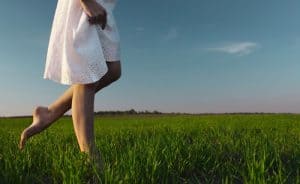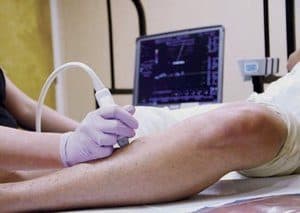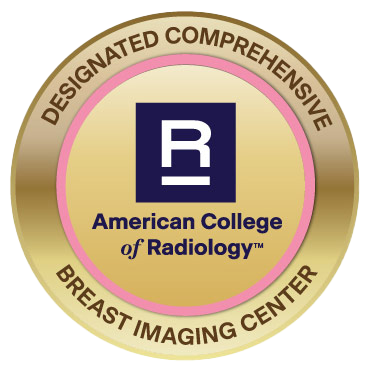If you can’t properly accomplish diagnosing vein disease and locate the source of a problem, then it can’t be fixed. In many ways, our ultrasound technicians are at the core of our ACR accredited labs.
Doppler ultrasound is the diagnostic tool of choice for nearly all vein conditions. At the Advanced Vein Center, this technology plays a vital supporting role in almost everything our doctors do. During procedures, ultrasound is used to view your venous system in real-time to ensure the highest precision.
Vein Treatments tailored to your unique situation
Our facility treats spider veins and varicose veins of all sizes every day. We also resolve physical symptoms such as leg pain, achiness, swelling, heaviness, and tiredness. Our treatment options include Radiofrequency (RF) ablation, VenaSeal vein adhesive, and sclerotherapy. We also offer laser treatments, surgical removal of large surface veins, and any combination of the above.
Proper follow-up ensures long-term vein health

Simple home remedies for veins to do right now
The following are some suggestions to help you elevate your legs regularly. In all cases, make every effort to elevate your legs above the level of the heart.
- When laying down to sleep, prop up your legs with pillows. This is an easy way to elevate your legs all night long.
- When sitting at a desk or table simply lean back and put your legs up.
- Lie on your back and stretch your legs up against a wall. This isn’t practical in every situation, but allows for maximum elevation.
- One of the primary risk factors for varicose veins is being overweight or obese. Veins struggle to return blood to the heart when you are overweight, which could eventually result in varicose veins. The veins will move the blood back more easily if you lose weight. Additionally, it will stop the development of fresh varicose veins.
Can vein diseases be genetic or hereditary?
Yes, vein diseases can be genetic or hereditary. Certain vein conditions, such as varicose veins and chronic venous insufficiency (CVI), can run in families and have a strong genetic component. If you have a family history of vein diseases, you may be at an increased risk of developing these conditions compared to individuals without a family history.
The specific genetic factors that contribute to vein diseases are still being studied, but it is believed that variations in genes related to the structure and function of vein walls and valves play a role. These genetic variations can affect how well veins can withstand pressure, maintain proper blood flow, and prevent backflow or pooling of blood.
It’s important to note that while genetics can increase your susceptibility to vein diseases, they are not the only factors involved. Lifestyle and environmental factors, such as obesity, prolonged standing or sitting, lack of exercise, and hormonal changes, can also contribute to the development of vein conditions.
If you have a family history of vein diseases, it’s a good idea to be proactive about your vein health. Regularly monitor your legs for any changes in vein appearance or symptoms, and consider adopting healthy lifestyle habits that promote good vein circulation, such as regular exercise, maintaining a healthy weight, and avoiding prolonged periods of sitting or standing.
Can vein diseases lead to complications if left untreated?
Yes, vein diseases can lead to complications if left untreated. Conditions like varicose veins and chronic venous insufficiency (CVI) can worsen over time, causing symptoms such as pain, swelling, and leg fatigue. If untreated, these conditions may progress to more severe complications, including skin changes, ulcers, and blood clots. Venous ulcers can be challenging to heal and may result in chronic wounds. Blood clots can lead to deep vein thrombosis (DVT), which can be life-threatening if the clot dislodges and travels to the lungs (pulmonary embolism).
Can Varicose Vein Treatment Help With Swellings and Heaviness In Legs?
Yes, you will get all the help for heaviness and swellings in your legs after varicose veins especially if those problems arise because of varicose veins the first place. These two are some of the most common Symptoms of varicose veins, and happen when poor blood circulation because of varicose veins fails to provide blood sufficiently in the body. During a varicose veins treatment, methods like sclerotherapy, laser treatment, or Radiofrequency ablation will be used to improve the blood flow in the troubled veins. Which will gradually help you reduce the swellings and heaviness in your legs!
Does Aging Affect The Success Of Varicose Veins Treatment?
Yes, aging may affect the success of varicose veins treatment in several ways:
- Weaker Vein Walls: As we get older, the vein walls become weaker and loose elasticity, which leafs to development of even more of these veins. Fortunately, the treatment can easily close them off, but since older age mages vein walls weak, older people are prone to even more varicose veins even after a treatment.
- Slower Healing: Compared to younger people, older people have much weakened and slower healing, which can make the treatment lengthy and harder.
- Underlying Condition: Older individuals are a lot more likely to develop multiple health conditions because of the weakened body, which means if you get the varicose veins treatment and it’s actually because of an underlying condition then the treatment will be a complete waste and more varicose can easily appear in future.
- Blood Circulation: Varicose veins are mainly caused by poor blood circulation and if in an old age you are suffering from problems related to blood circulation, the treatment can be hard or even ineffective on you, which is something really serious.


